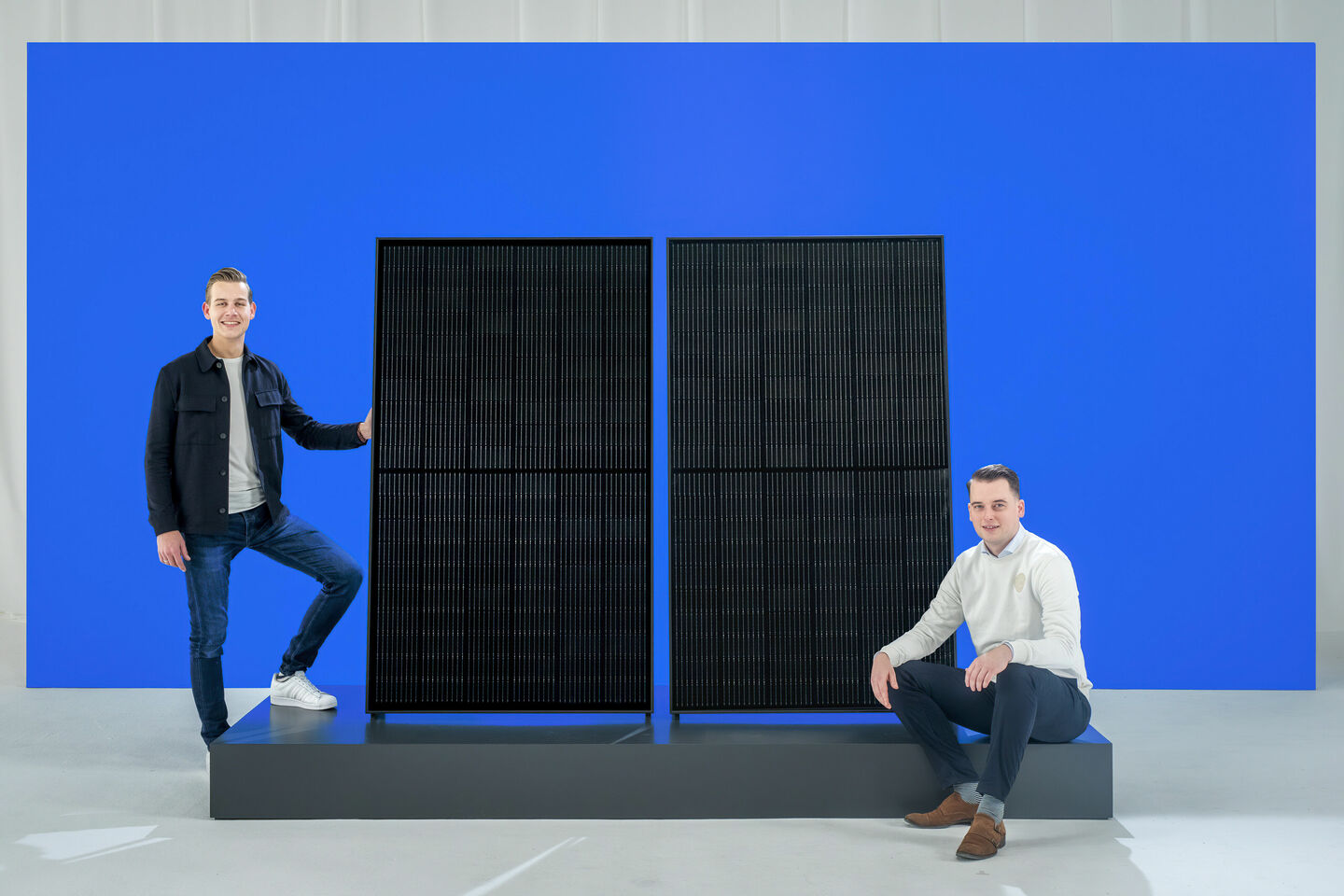
From student to CEO
How TU/e alumni Michiel Roelofs and Rein Westerdijk started a - now successful - company during their studies
What started out as two students passionate about energy turned into the foundation of the successful TU/e spin off Taylor. Earlier this year, the company received a whopping eight million euros worth of new investments. Cursor talked to co-founder and CEO Michiel Roelofs about their unique technology that allows them to extract more energy from solar panels, the growth process, and tips for ambitious students.
‘Taylor is a young high-tech company dedicated to making solar systems deliver more power,’ says their website. They entered the market a year-and-a-half ago and have sold 45,000 of their solar panels. This growth is based on Taylor’s unique technology, which gives their solar panels up to twenty percent greater yield than traditional models.
The technology
“There are two possible systems at the moment,” says Roelofs. “Solar cells are connected in series (one behind the other, ed.). When, in standard systems, one of them produces less power (for instance due to shade, ed.), it blocks the other solar cells in all panels.” To prevent such a power blockage, alternative routes – known as ‘bypass diodes’ – are created, he explains. “Bypass diodes are actually black and white: they turn it on or off. This means that if a cell is producing slightly less, a large portion of the panel is completely turned off, in which case you really lose everything in that area.”
“System two is that you determine the power per panel. Like micro-inverter systems for example (one small inverter per panel, instead of one for multiple panels, ed.). So if something is blocked, it just has an effect on the one panel,” Roelofs adds. “In comparison to the standard systems this gives you up to ten percent more power.”
“What we do is take as much energy from it as possible, without turning anything off,” he explains. This technology is based on the optimization of small solar cell clusters, according to Roelofs. “We ensure that whatever energy is left in the panel is extracted from it. This gives you a yield that’s up to twenty percent greater than that of the bypass diodes.”
I was in the process of graduating and Rein hadn’t even started yet
The path that led there
Roelofs founded Taylor together with Rein Westerdijk, a fellow TU/e alum. “Rein and I knew each other already because we had previously set up Energy Now, an energy congress, with a group of students.” In addition, both had been involved in several student teams, including Team Energy, and student projects.
During one of these projects they encountered a gap in the solar panel market, one they were all too happy to fill. This is how they were put in touch with Paul Beijer. “He worked at the Equipment and Prototyping Center and, together with TU/e, had filed for a patent for an electronics algorithm to get as much energy as possible from very small groups of solar cells,” Roelofs says. “TU/e regularly sells this kind of knowledge to larger companies, but things had been at a standstill for a while already. That’s when we said that we would like to develop it and see how far we could take it.”
From that point onwards, things went quickly. Roelofs and Westerdijk took over the patent and started their own TU/e spin-off: Taylor. “I was in the process of graduating and Rein hadn’t even started yet. So at the time it was more like a student team than a real company,” he says, laughing. Despite the – as Roelofs says – student-like character in the early phase of the spin-off, they have managed to take big leaps in a short amount of time. Below is a timeline of the most important milestones.
“Now we’re at a point that we’re seeing it’s going well, we have the courage to move into Belgium and France,” Roelofs says. And that’s exactly what the recent eight million euro investment will be used for, he explains.
We always profited a great deal from the environment
Help within reach
Roelofs emphasizes the success of Taylor isn’t only thanks to them. “We always profited a great deal from the environment,” he tells us, referring to TU/e and all facilities it offers. Take the Innovation Space, where they had their office and could experiment all they wanted in the first years. “At that stage you’re not entirely ready yet to really talk to investors. You’re kind of trying stuff out and it’s so great to have a place where you can actually do that.” In addition to the university, he says he’s profited a great deal from other companies and knowledge institutions in the region. “So it’s not a coincidence our company came into being in Eindhoven. You have so many smart parties you can collaborate with and learn from.”
Roelofs wants to tell students with similar ambitions that help is almost always within reach. “If you really do your best and write a good email, there are lots of people who enjoy giving you advice and helping you figure things out.” For him, the tables have turned and now he’s one of these people prepared to help out. For instance, he tells us, he recently threw ideas around with students from Team Polar. So if you have a burning question that you think Roelofs can assist you with, why not write him a good email. He might just help you out.


Discussion